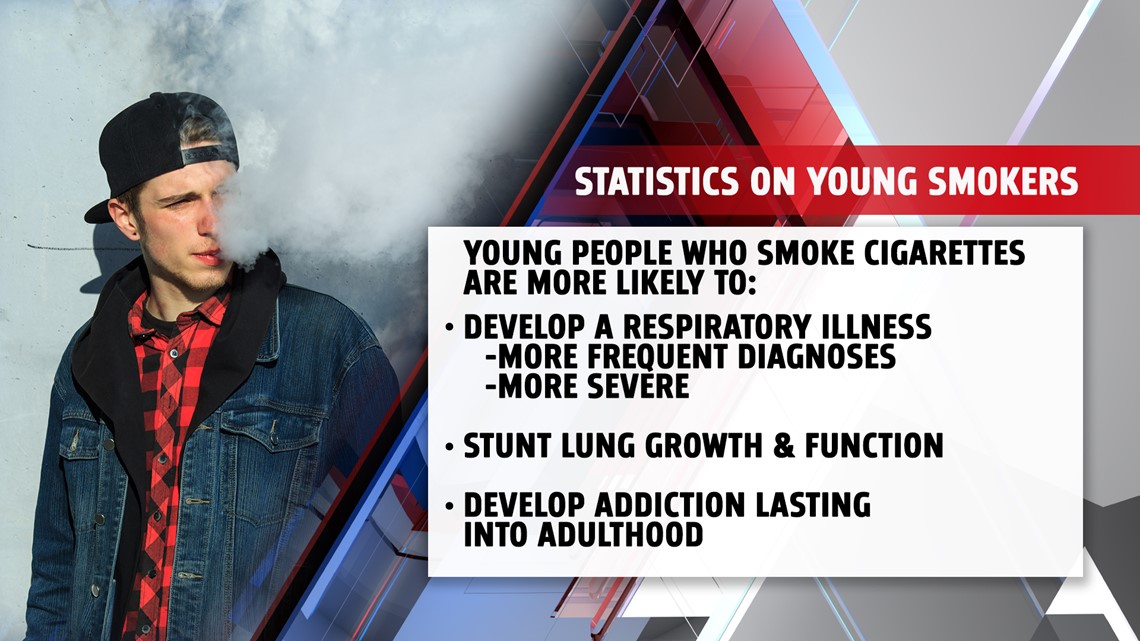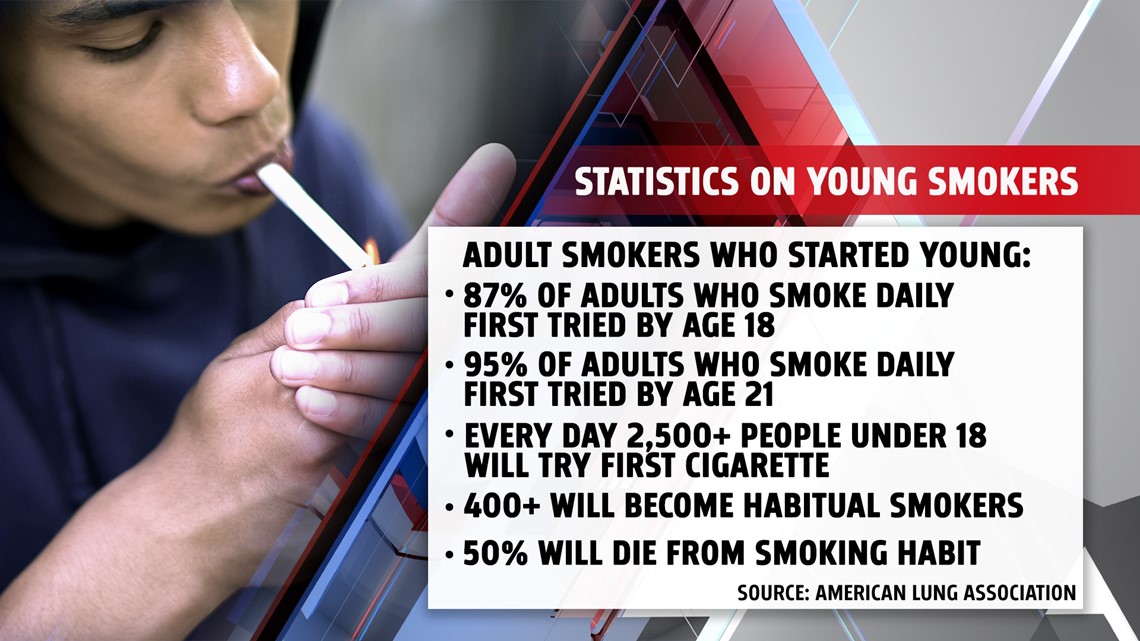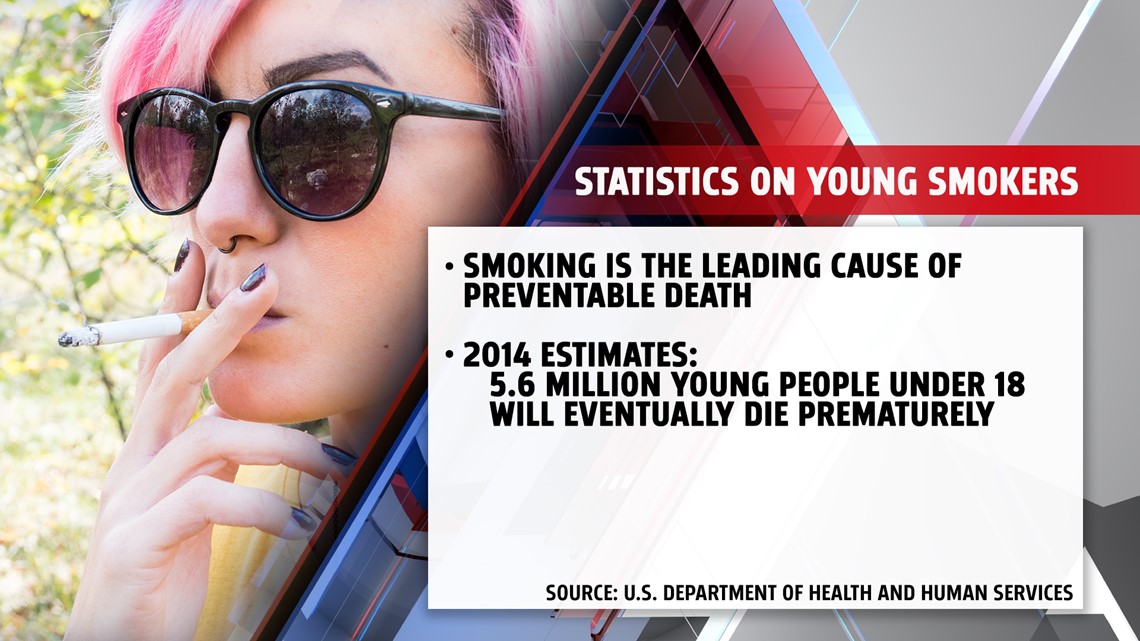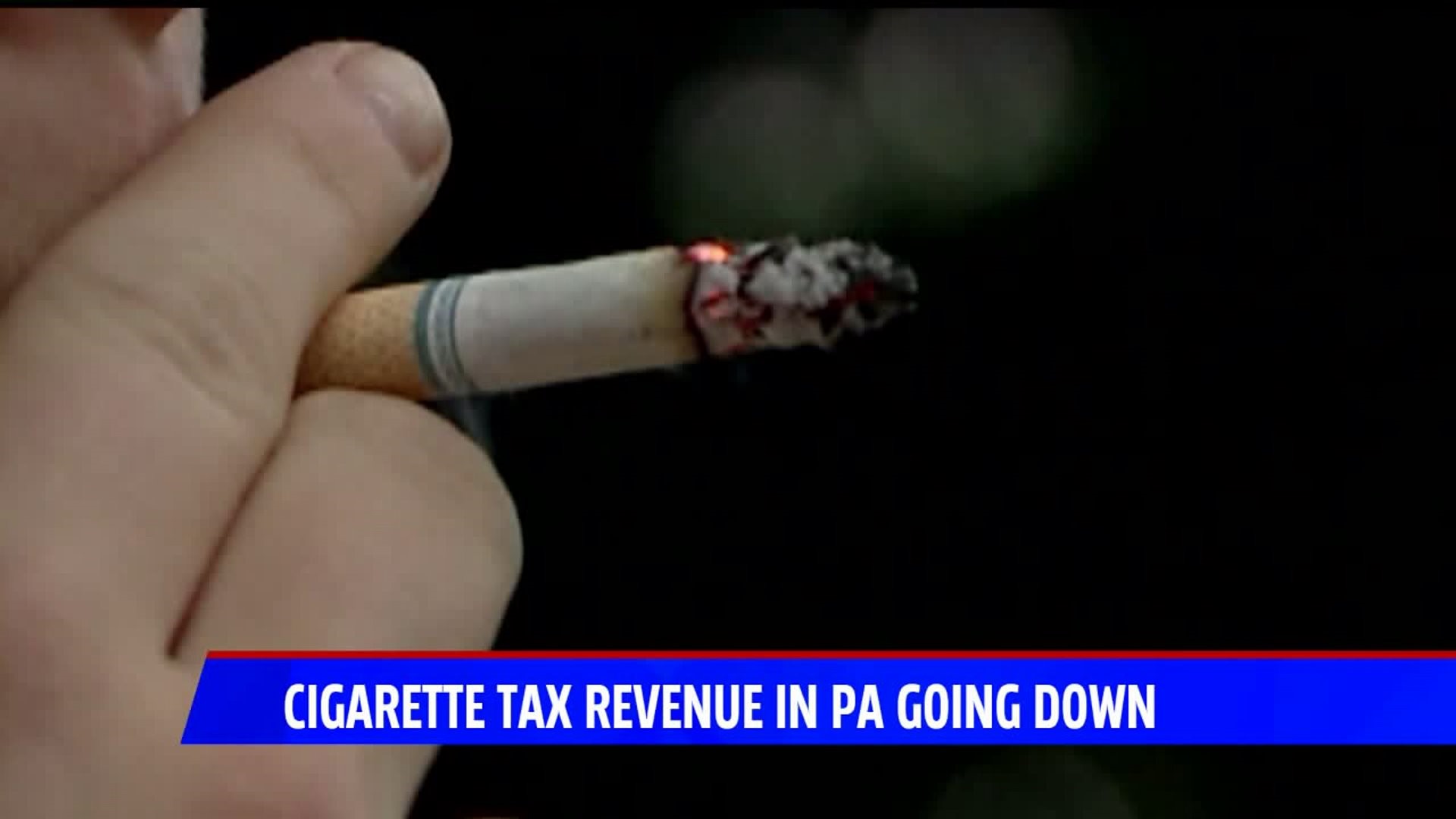HARRISBURG, Pa. -- Whether in Pennsylvania, California, or a U.S. territory, you'll have to be 21 or older to purchase any kind of tobacco product soon. That's because of new laws going into effect this year. The move comes after years of advocacy by health groups around the country, who argue hundreds of thousands of premature deaths will be prevented simply by raising the legal age by three years.
The U.S. Food and Drug Administration posted a message on its website, saying the following: "It is now illegal for a retailer to sell any tobacco product - including cigarettes, cigars and e-cigarettes - to anyone under 21. FDA will provide additional details on this issue as they become available."
Protecting the health of young people is seen as the reason for raising the age. In May 2017, State Sen. Mario Scavello, -R- Monroe County, started working on legislation to raise the age to buy tobacco products after hearing from teenagers. He said cigarettes can add even more stress to being a teenager.
As for saving lives, a report from the National Academy of Medicine found raising the legal age to buy tobacco to 21 could prevent 223,000 deaths among people born between 2000 and 2019.
During a rally to raise the legal age, Sen. Scavello said addiction at a young age can last later into adulthood and even take lives.
"I've lost a dad to cancer, and a father-in-law to cancer, smoking cigarettes," he said. "It's something that anytime I can help other people, we need to, and I need to continue to do that."


The American Lung Association says young people were more likely to develop a respiratory illness from smoking, compared with an adult. The number and severity of those illnesses is higher, too. Smoking at a young age also has the potential to stunt lung growth and function, and those smokers are also likely to keep their smoking habits into, and sometimes through, adulthood.


According to the ALA, 87% of adults who ever smoked daily tried their first cigarette by the time they were 18, and 95% tried their first cigarette by the time they were 21. More than 2,500 people under 18 will try their first cigarette every day, 400 of whom will go on to become habitual smokers, and half of them will die from their habit.


Smoking is the leading cause of preventable death. In 2014, the U.S. Department of Health and Human Services concluded some 5.6 million people under 18 will eventually die prematurely from a smoking-related disease, if tobacco use patterns persisted.
While smoking tobacco remains a prevalent concern, data from the Pennsylvania Department of Revenue shows cigarette sales are going down. In the 2015-2016 fiscal year, smokers paid the state nearly $750 million in cigarette taxes. After a cigarette tax increase, that number jumped to $1 billion for the 2016-2017 fiscal year. In the 2017-2018 fiscal year Pennsylvania brought in $1.23 billion in cigarette tax revenue, and that number is expected to drop by the tens of millions over the next three years.
In Pennsylvania, plenty of high school students have used tobacco in some form or another. According to the Truth Initiative, a Non-profit health organization dedicated to reducing tobacco use, 11.3% of high school students reported using electronic vaping products in 2017. In that same year, 8.7% of high school students smoked cigarettes, 7.6% smoked cigars, and 6% used chewing tobacco, dip, or snuff.
At the national level, more young people are using tobacco products. The U.S. Centers for Disease Control and Prevention says of the 15.6 million high school kids in the country, nearly 5 million reported using some kind of tobacco product. More than 4 million students said they used e-cigarettes.
E-cigarettes are also being used fairly frequently among those kids. Of the high school students who used e-cigarettes, about 1.4 million used them between 20 to 30 days in a month. 19.4% reported using them between 6 to 19 days in a month. 46.4% used them 1 to 5 days in the last month.
Going off of the warning from HHS, The CDC's Deputy Director of the Office on Smoking and Health said the aforementioned data shows "past progress in reducing youth uses of these products has been erased."
In addition to smoking tobacco, there are also concerns about vaping and the recent cases of a vaping-related lung disease affecting young people. 55 people have died from it, so far. The vaping products are not regulated by the FDA, and medical experts say people don't always know what's in them or how all of the chemicals interact inside the body.
This is why the Trump Administration banned the sale of flavored E-Cigarettes on Thursday. The FDA announced a ban on sales of all cartridge-based flavors other than tobacco and menthol, warning companies that don't stop manufacturing, distributing, and selling those now-unauthorized flavors within 30 days risk FDA enforcement. The FDA also says it's going to monitor the use rates of all e-cigarette products, and take additional steps, to address use among the youth.
While the new federal law will affect the entire country, Pennsylvania was among 16 states to do the same thing beforehand. Most of its neighboring states like New York, New Jersey, Delaware, Maryland, and Ohio all passed laws to raise the age to buy tobacco products to 21. In the West, four states did the same thing: Utah, Washington, Oregon, and California. The three Southern states on that list, Virginia, Arkansas, and Texas, passed laws to raise the age to buy tobacco products, but provisions in their laws make the age increase less effective.
Pennsylvania's law to raise the legal age to purchase tobacco products will go into effect July 1st.

